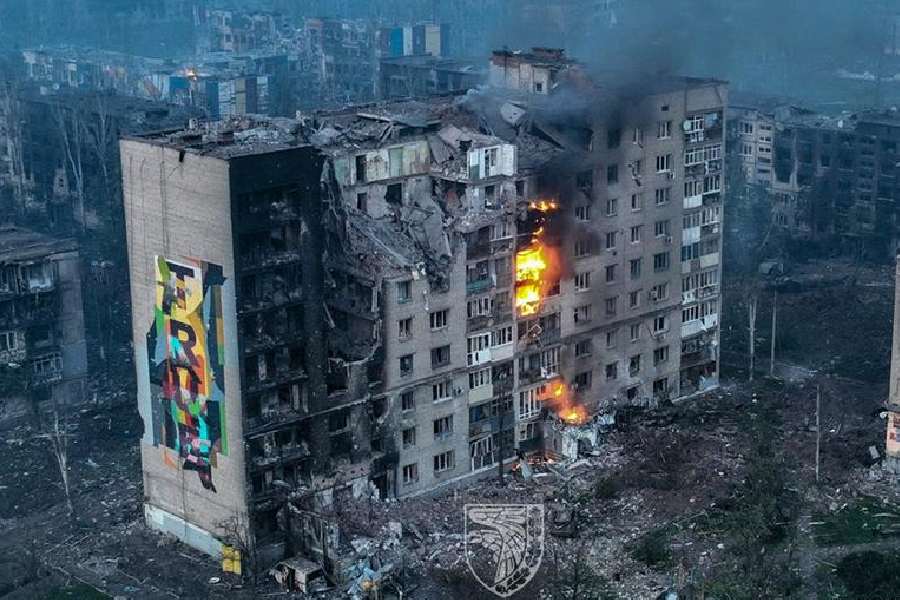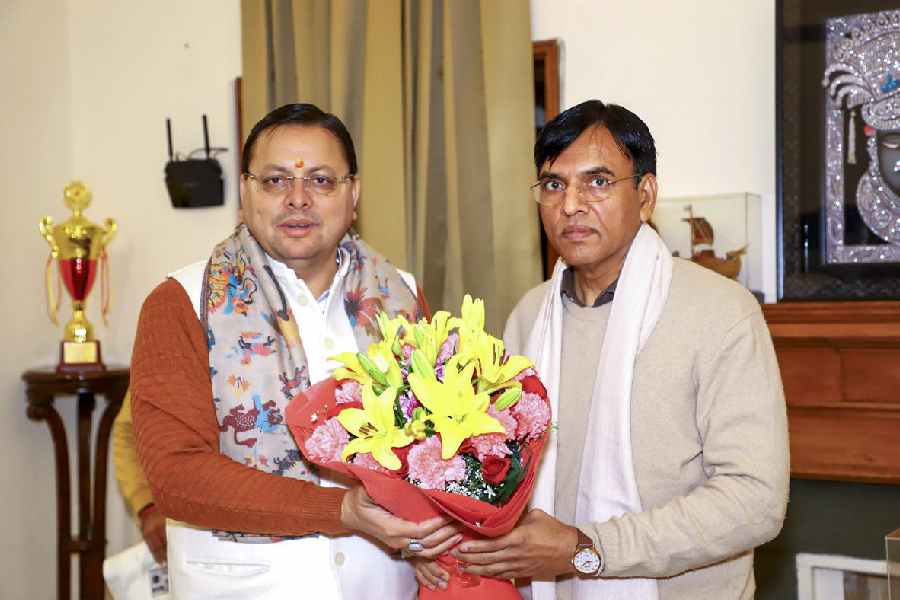German Development Minister Svenja Schulze has told DW that Russia should one day be made to pay for the reconstruction of war-ravaged Ukraine.
"They have to pay for what they destroyed. That is the international law," she said. "That they need to pay — that is obvious."
"They destroyed all the infrastructure, they destroyed the houses and they need to pay for that," she added.
Schulze was attending the Ukraine Recovery Conference in London, an international gathering of delegates from more than 60 countries aimed at funding rebuilding efforts in Ukraine.
The World Bank put the cost of reconstruction at an estimated $411 billion (€375 billion) in March, just over a year after Russia invaded its neighbor. That figure will only rise as the conflict rages on.
€60 billion in pledges for Ukraine
By the close of the conference on Thursday, foreign donors had pledged around €60 billion in new financial support, the UK said.
Most of that comes from a €50 billion aid package the EU announced this week. The US also plans to deliver $1.3 billion in aid, specifically focusing on the energy and infrastructure sectors. Britain pledged 240 million pounds ($305 million; €278 million), and Germany announced €381 million in humanitarian aid.
British Foreign Secretary James Cleverly said the commitments would help provide some economic stability for Ukraine in the medium term, and that the focus was now on unlocking "the enormous potential of the private sector."
Nearly 500 companies from 42 countries, including Google, Siemens, Vodafone, Virgin Group and Rolls-Royce have made commitments, Cleverly said.
"Together as governments, as international organizations, as businesses, as representatives of civil society, we have shown Ukraine and the Ukrainian people that we stand with them," he added.
Attracting private investment
Germany's Schulze said many companies had stayed in Ukraine despite the fighting, and that the country remained an attractive potential investment market, particularly in the medium and long term.
"Ukraine is [a] future part of the European market," Schulze said to DW, referring to the country's status as a candidate EU member. "So the ones who are investing now are the first to be part of that bigger market."
One of the conference's main goals was also to put in place guarantees to help mitigate the risk for private companies choosing to invest. Schulze said Germany had such a system for German companies that met certain criteria.
"If they invest in Ukraine, they get help from the German government," she said. "And that is really very successful. So that could be an example for others."
'We are not waiting for the end of the war'
Schulze also stressed that it was crucial to start coordinating international donations now, even though the conflict is still ongoing.
"Because it [the rebuilding process] has started," she said. "We need … houses for the people who are in Ukraine. We need power. We need water. And coordinating that in a better way, that is the core of this conference."
Ukrainian Prime Minister Denys Shmyhal, who was also in London, thanked delegates for their financial support and said rebuilding his country was getting underway.
"We are not waiting for the end of the war," he said.
Shmyhal also called for a "compensation mechanism" to allow frozen Russian assets to be used to rebuild Ukraine. However, the issue is contentious, and reaching an international agreement on such reparations could prove difficult.
Germany is scheduled to host the next Ukraine Recovery Conference in 2024.











